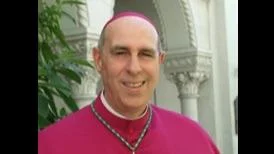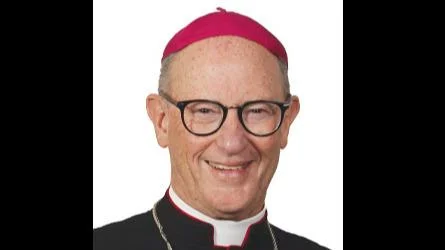
Reverend Larry Silva, Bishop | Diocese of Honolulu
The Bishop of the Diocese of Honolulu delivered a homily for the Twentieth Sunday of Ordinary Time, focusing on the transformative nature of fire as a metaphor for change and renewal within the Christian faith.
Drawing comparisons to everyday professions, the bishop noted, "Butchers know it. Bakers know it. Candlestick makers know it. Fire changes things. Butchers know that a raw cut of meat can be transformed into a delicious steak when it is fired on the grill. Bakers know that bland dough can become delicious breads, cakes or cookies when the fire of the oven is applied. Candlestick makers know that their creations disappear with fire, but before they do, they give warmth and light to all who see them."
He related this understanding to Jesus' mission, stating, "So it is that Jesus reminds us that he has come to set the world on fire, to bring about change, to call us to repentance, and to transform death into life. We sometimes cling to our bland and lethargic ways, but Jesus knows that we will only be truly alive if we allow the fire of his love to burn and transform us."
Addressing both positive and negative aspects of fire's power, he referenced recent natural disasters: "We know, of course, that fire can also be dangerous and destructive, still bringing about a change, but one that is by no means desirable. I think of the wildfires two years ago in Lahaina, Maui or more recently in Southern California. Perhaps it is because of the danger of fire that we are often resistant to letting Jesus set us on fire with his love. Yet sometimes fire is just what is needed to burn away the barriers that allow the love of God to flow more freely within our community."
The bishop cited biblical figures such as Jeremiah: "The prophet Jeremiah was on fire with his love for God and his zeal to call the people of Israel from its infidelity back to fidelity. There were those who did not want to deal with the kind of change in their lives that would be necessary if God were to be taken seriously. So, they try to douse the fire of Jeremiah’s zeal by casting him into a cistern, where he would sink in the mud and never be heard from again. But God’s fire cannot be put out, and he was rescued so that he could continue his fiery preaching, calling Israel out of the mud and muck of infidelity that they had chosen to sink into."
He connected these themes with issues facing modern society: "We have so many issues in which just looking the other way can lead to even more serious consequences. There is the issue of homelessness, which we are all called to ponder and address in some way. It is not only a question of providing emergency food and shelter, but of looking at the root causes of homelessness, and applying the fire necessary in our personal lives and in our civic engagement to let the fire of Jesus’ love truly transform this situation to one where everyone lives in dignity. It may require some controversy, and much self-sacrifice, but Jesus reminds us that these are a part of living the fired-up lives that he calls us to live."
On family relationships: "We see family relationships... deteriorating through divisions, selfishness, and ideologies that work against family life. To confront them and make real changes for the better, fire is needed to burn away destructive attitudes and fuel hard work..."
He concluded by urging parishioners not only toward personal transformation but also communal responsibility: "The parish and its pastor have mission... It can be scary... There is majority... who do not truly know Jesus... It is for us spread... but we often hesitate because we do not want risk causing divisions..."
In closing remarks: "Butchers, bakers... know... Fire transforms. Jesus... knows his fire can transform our world..."






 Alerts Sign-up
Alerts Sign-up